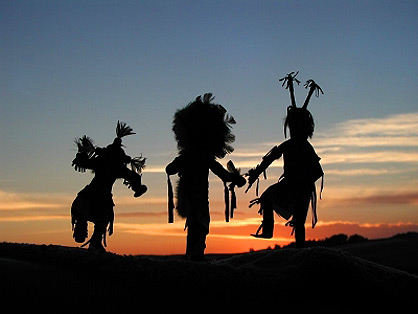
Last night I cleared away empty wine glasses and crumpled napkins which were the detritus of this year's esteemed Munk Debates, held at Toronto's lovely Royal Conservatory. The topic under "debate" went something along the lines of "Be it resolved, climate change represents the greatest challenge facing humanity." Yawn. The speakers at the event came from around the world, at least three of whom are no doubt making quite a living to speak in front of affluent and doubtless passionately concerned audiences such as this one.
Two panelists argued that yes, the rise in global temperatures warns of the coming end times, lest of course the wealthy and enlightened countries reach some sort of consensus and pledge their worthy names to a binding treaty. The other two panelists say nay, there are other equally if not more pressing concerns for the human community than pinning down the precise quantity of carbon molecules allowable under the lower rungs of the earth's several atmospheres. Human poverty was the major talking point for the nay-sayers, who emphasized that several billion of us have daily concerns ranging from whence to find a grain of rice and drop of water, how to avoid hacking machetes and murderous bullets and where to die in peace from easily preventable diseases. A majority of the world's population couldn't care less about the terrifying worries and bold predictions of well-sheltered, clothed and fed experts.
The one issue that struck me, as well as at least one other service staff attendant, was that the "debate" framed the issue as though yes or no were the only responses possible. This form of "debate" has its roots in the theological/philosophical habits of medieval monks (please note the clever pun). Back then, robed and bearded men thought that all that could be said about the world had already been said by the wise ancients. It was left for future generations to distill their arguments into invincible formal logic. When these monks gathered to debate, they showed their skill to the extent that they successfully parroted the logical skeletons that under lay whichever topic. The point was to follow as closely as possible the logic of the reasoning, and the most legendary orator was he who could dress the expected arguments up in the pomp and splendor of rhetoric. Nothing new was expected, nothing new was offered. Debates were mainly and merely exercises in formal logic.
So too the debaters last night were guilty of trotting out the well-worn issues readily found in the books they regularly publish. The highs and lows of the night's "debate" depended on the volume and quivering emotion evinced in the speaker's voice. Each side was guilty of that most modern of comic absurdities: Issuing forth statistical quotations as though these stood as "facts." Laughably, each of the four interlocutors would peer into their satchel of facts, bringing them out one a time, like a precious object in an Indiana Jones movie. The only truth contained in these exceedingly particular and ephemeral "facts" was that each speaker had his or her own favorites. It amazes to see intelligent human beings not blush at the irony.
The sooner the issue over climate change is recognized as having profoundly emotional, perhaps even spiritual, origins for those involved, the sooner these debates will quit with the asinine cliche and reach the blood and guts and carbon molecules of the thing.

1 comment:
We're having too much fun selling books.
Post a Comment